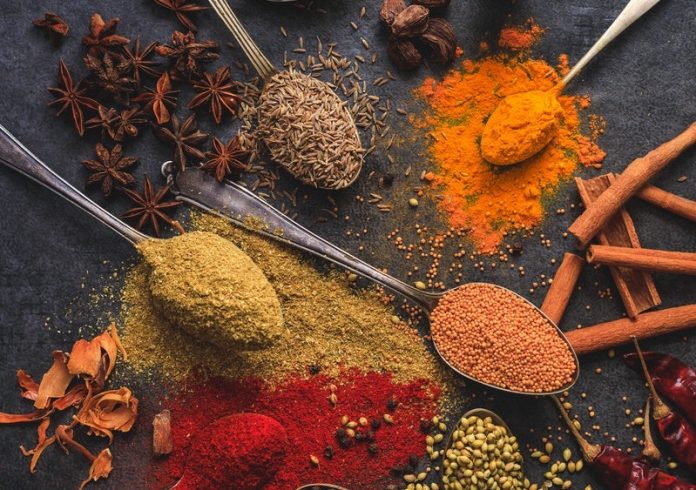
In a new study, researchers found that adding an array of spices to your meal does not only make it tastier but also may increase its health benefits.
They found that when participants ate a meal high in fat and carbs with six grams of a spice blend added, the participants had lower inflammation compared to when they ate a meal with less or no spices.
The finding may provide a way to make a high-fat or high-carb meal more healthful.
The research was conducted by a team at Penn State.
Previous research has linked a variety of different spices, like ginger and turmeric, with anti-inflammatory properties.
Additionally, chronic inflammation has previously been associated with poor health outcomes like cancer, heart disease, and overweight and obesity, which affects approximately 72 percent of the U.S. population.
In more recent years, researchers have found that inflammation can spike after a person eats a meal high in fat or sugar.
While it is not clear whether these short bursts—called acute inflammation—can cause chronic inflammation, it is possible that they play a factor, especially in people with overweight or obesity.
In the study, the researchers used a blend of basil, bay leaf, black pepper, cinnamon, coriander, cumin, ginger, oregano, parsley, red pepper, rosemary, thyme, and turmeric.
They tested 12 men between the ages of 40 and 65, with overweight or obesity, and at least one risk factor for heart disease.
In random order, each participant ate three versions of a meal high in saturated fat and carbohydrates on three separate days: one with no spices, one with two grams of the spice blend, and one with six grams of the spice blend.
The researchers drew blood samples before and then after each meal hourly for four hours to measure inflammatory markers.
The researchers found that inflammatory cytokines were reduced following the meal containing six grams of spices compared to the meal containing two grams of spices or no spices.
The team says six grams roughly translates to between one teaspoon to one tablespoon, depending on how the spices are dehydrated.
While the researchers can’t be sure which spice or spices are contributing to the effect or the precise mechanism in which the effect is created, they said the results suggest that the spices have anti-inflammatory properties that help offset inflammation caused by the high-carb and high-fat meal.
Additionally, a second study found that six grams of spices resulted in a smaller post-meal reduction of “flow-mediated dilation” in the blood vessels—a measure of blood vessel flexibility and marker of blood vessel health.
The lead author of the study is Connie Rogers, an associate professor of nutritional sciences.
The study is published in The Journal of Nutrition.
Copyright © 2020 Knowridge Science Report. All rights reserved.



